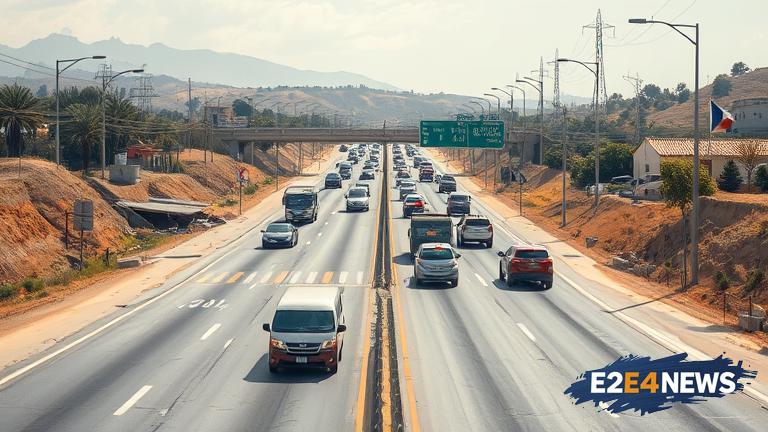Protesters in Israel have escalated their demonstrations, blocking major highways across the country, including the Ayalon Highway, in a bid to express their discontent against the government’s policies. The protests, which have been ongoing for several weeks, have gained momentum in recent days, with thousands of Israelis taking to the streets to voice their opposition to the government’s plans. The Ayalon Highway, a major thoroughfare in Tel Aviv, was blocked by protesters, causing significant disruptions to traffic and daily life. The protesters, who are demanding changes to the government’s policies, have been met with a heavy police presence, with reports of clashes and arrests. The government has been criticized for its handling of the protests, with many accusing it of using excessive force against peaceful demonstrators. The protests have also sparked a wider debate about the state of democracy in Israel, with many arguing that the government’s actions are undermining the country’s democratic institutions. Despite the challenges, the protesters remain determined, with many vowing to continue their demonstrations until their demands are met. The international community has been watching the situation closely, with many calling for calm and restraint. The Israeli government has faced criticism from human rights groups and other countries, who have expressed concern about the treatment of protesters. The protests have also had an impact on the country’s economy, with many businesses affected by the disruptions. The government has attempted to address the concerns of the protesters, but so far, its efforts have been met with skepticism. The protests have highlighted the deep divisions within Israeli society, with many feeling that the government is out of touch with the needs and concerns of its citizens. The situation remains volatile, with many predicting that the protests will continue in the coming days and weeks. The Israeli police have been accused of using aggressive tactics against protesters, including the use of tear gas and rubber bullets. The government has defended its actions, saying that it is necessary to maintain public order. However, many have argued that the police response has been disproportionate and has only served to escalate the situation. The protests have also sparked a wider conversation about the role of social media in mobilizing protests and organizing demonstrations. The use of social media has allowed protesters to coordinate their efforts and reach a wider audience, but it has also raised concerns about the spread of misinformation and the potential for violence. The Israeli government has faced criticism for its attempts to restrict the use of social media during the protests, with many arguing that this is an attempt to suppress free speech. The situation in Israel remains complex and multifaceted, with many different factors at play. The protests have highlighted the need for dialogue and compromise, but so far, a resolution to the crisis remains elusive. The international community will be watching the situation closely, as the protests continue to unfold. The Israeli government will need to find a way to address the concerns of the protesters, while also maintaining public order and ensuring the safety of its citizens. The coming days and weeks will be crucial in determining the outcome of the protests and the future of Israeli democracy.
